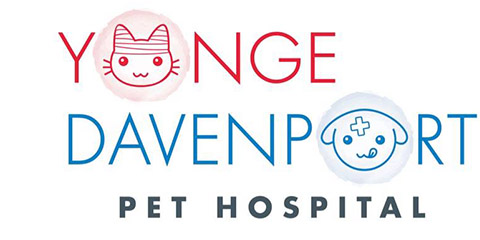Library
-
Discospondylitis is a bacterial or fungal infection of the intervertebral disks and the adjacent vertebral bones. It primarily affects dogs, though rarely can affect cats. It affects large breed dogs more often and generally starts clinically as back pain. The diagnosis and treatment of this condition are outlined in this handout.
-
Dogs exhibit many normal behaviors that can seem unruly. Some dogs are overly active and never seem to settle. Attempts to stop disruptive, normal behaviors using corrections are not typically successful. Effective techniques rely on training desired responses instead. Sometimes, even when trained, dogs do not listen. This is usually due to a lack of understanding rather than deliberate disobedience. Retraining basic skills can be helpful.
-
Distemper virus is a highly contagious disease that can affect multiple body systems and is potentially fatal. Puppies are most susceptible, and respiratory, gastrointestinal, or neurologic signs may be seen. Vaccines are available and are highly effective at preventing disease.
-
DNA is a large complex molecule that carries the genetic information or genetic code of an organism. All common forms of life, such as viruses, bacteria, plants, and animals carry a copy of their own genetic code in each of their cells. Each organism has a unique section of DNA that is just like a fingerprint. DNA-PCR is often used to detect the presence of infectious organisms; especially when detecting extremely small numbers of infectious organisms and for detecting certain viruses and bacteria that are difficult to diagnose by other methods.
-
Just like people, your dog can mourn when there has been a loss in their world, and the symptoms are similar. There are ways that you can help, with some guidance from your veterinarian or a behaviorist if needed.
-
The simple answer to a complicated, much researched question is, yes! Dogs do recognize our facial expressions which makes them wonderful family members.
-
Behavior problems with your dog may need to be addressed by a trainer, certified animal behaviorist, or boarded veterinary behaviorist. Determining what level of help you need depends on the problem and if medical issues have been ruled out. Behavioral problems can take time and patience is a must.
-
Ear and body handling are essential skills for every dog. Teaching trust and comfort for ear handling is best done before an infection occurs. Training for ear handling should be done when the ears are not painful. Using sedation and anesthesia is always a good idea for painful ears.
-
Dogs are not wolves living in our homes. But even if they were, dominance theory and alpha theory would not apply, just as they do not apply to wolves. Dogs do the behaviors that work and using management, prevention, supervision, and positive reinforcement is the best way to create a dog you love.
-
Before making the decision to bring a new dog into your household, there are some important factors to consider, including compatibility with your current dog, how they will be introduced, and what additional training will be required to ensure a harmonious multi-dog home.





